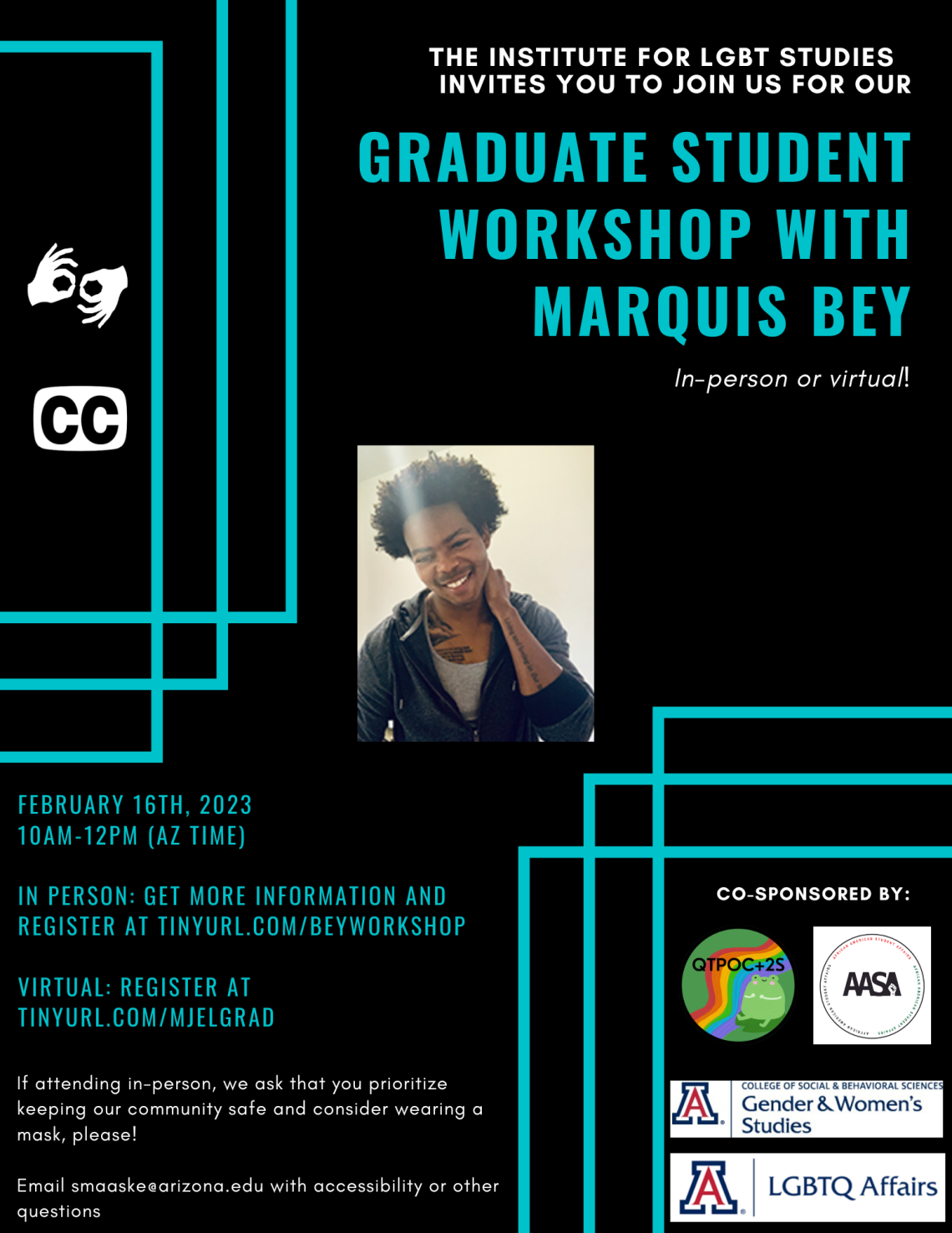
When
Please RSVP if you plan to attend the graduate student workshop with Marquis Bey.
In person: tinyurl.com/beyworkshop
Virtual: tinyurl.com/MJELGrad
Marquis Bey Graduate Student Workshop
Date: Thursday, February 16th, 2023
Time: 10:00am-12:00pm
About the workshop: A special workshop for graduate students with this year's Miranda Joseph Endowed Lecturer, Marquis Bey.
About the presenter: Marquis Bey's (they/them, or any pronoun)* work focuses on blackness and fugitivity, transness, and black feminist theory. Bey is particularly concerned with modes of subjectivity that index otherwise ways of being, utilizing blackness and transness—as fugitive, extra-ontological postures—as names for such otherwise subjectivities. These two analytics (rather than endowments of the epidermis or specific bodily morphologies) are the axes around which Bey thinks about subjectivity formation and deformation, abolition, and political work.
Currently, Bey is at work of multiple projects. Forthcoming with Duke University Press is Bey’s monograph Black Trans Feminism, which attempts to theorize the convergence of blackness, transness, and black feminism via the Black Radical Tradition, critical theory, and contemporary literature. Additionally, forthcoming with University of Minnesota Press’s Forerunners series is Bey’s short text The Problem of the Negro as a Problem for Gender, which deeply meditates on Nahum Chandler’s work, putting into conversation his thinking on paraontologpy and desedimentation with the transness and gender nonnormativity of transgender studies. Lastly, Bey is in the early stages of a collection of autotheory essays meditating on the relationship between blackness and the category of cisgender, tentatively entitled Cistem Failure.
*Note on pronouns: The “preference” for they/them pronouns to describe myself is an attempt to mark my irreverence toward the gender binary, and to mark my tentative and always-in-process relationship to gender nonbinariness. Put differently, this is not to say I “am” nonbinary but, more pointedly, seek a nonbinaristic relationship to my own understanding of my gender—an attempted unrelation to gender, as it were. Thus, it matters less what pronoun one uses for me; I am, ultimately, pronoun indifferent. That capaciousness is simply another attempt to express an irreverence and disdain for the gender binary and the ways it might inhere in pronouns.
This event is sponsored by the Institute for LGBTQ+ Studies and co-sponsored by the UA QTPOC+2S student group, African American Student Affairs, the Department of Gender and Women's Studies and the LGBTQ+2S Resource Center.
If you have questions about access or to request any disability-related accommodations that will facilitate your full participation in this event, please contact Sarah Maaske at smaaske@email.arizona.edu or 520-626-7005

